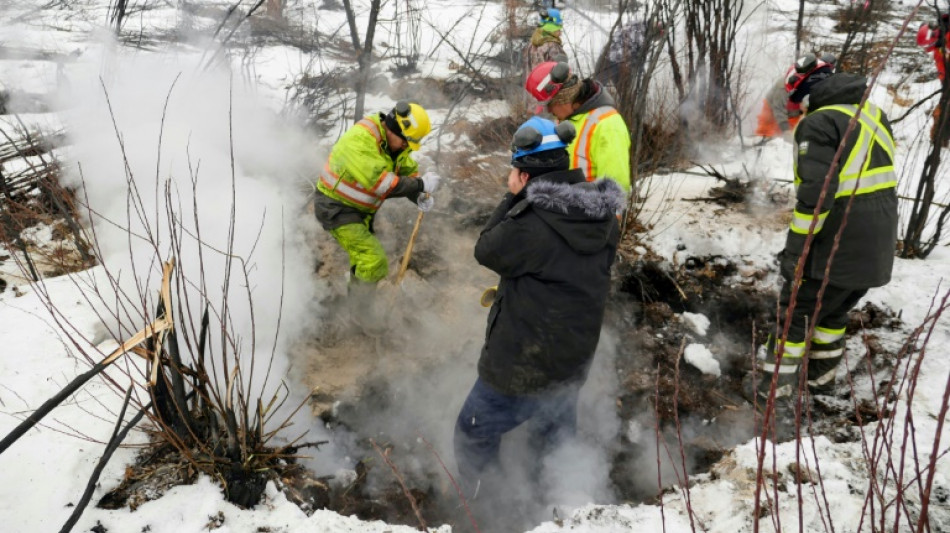

Canada readies for another 'explosive' wildfire season
Canada is bracing for another "explosive" wildfire season after last year's marked the worst that Canadians have ever known, federal officials said Wednesday.
There are multiple indications for major risk, including a warmer-than-normal winter that left little snow accumulation on the ground, compounding droughts in several regions.
"With the heat and dryness across the country, we can expect that the wildfire season will start sooner and end later and potentially be more explosive," Emergency Preparedness Minister Harjit Sajjan told a news conference.
"The temperature trends are very concerning," he added, pointing to possibly devastating impacts, notably in the provinces of Ontario, Alberta and British Columbia.
To meet these threats, Ottawa is planning to train an additional 1,000 forest firefighters, and will double a tax credit available to volunteer firefighters in the federal budget next week.
It will also provide Can$256 million (US$187 million) to the provinces and territories to buy specialized equipment.
Natural Resources Minister Jonathan Wilkinson noted: "Wildfires have always occurred across Canada. What is new is their frequency and their intensity."
"And the science is clear. The root cause of this is climate change."
The 2023 wildfire season -- "the worst season that Canadians have ever seen," said Sajjan -- cost the lives of eight firefighters and displaced 230,000 people.
More than 15 million hectares of forest went up in smoke, an area revised downward from earlier estimates of 18 million hectares. "That is well over seven times the annual average," stressed Sajjan. "The destruction was devastating."
He noted that, with smoke from Canadian wildfires last year choking cities as far away as the United States and Europe, the phenomenon has become "an international public health issue."
Officials also warned that 80 percent of Canada's Indigenous communities -- most of them in remote parts of the country -- are "at risk" due to their proximity to potentially flammable land.
As of Wednesday, approximately 65 fires were active across Canada, some of them holdovers from last year. There were also 10 to 12 times more so-called "zombie fires" that smoldered beneath the surface of the boreal forest in the northern part of the country through last winter, sustained by layers of dried peat and organic matter.
(A.Laurent--LPdF)




